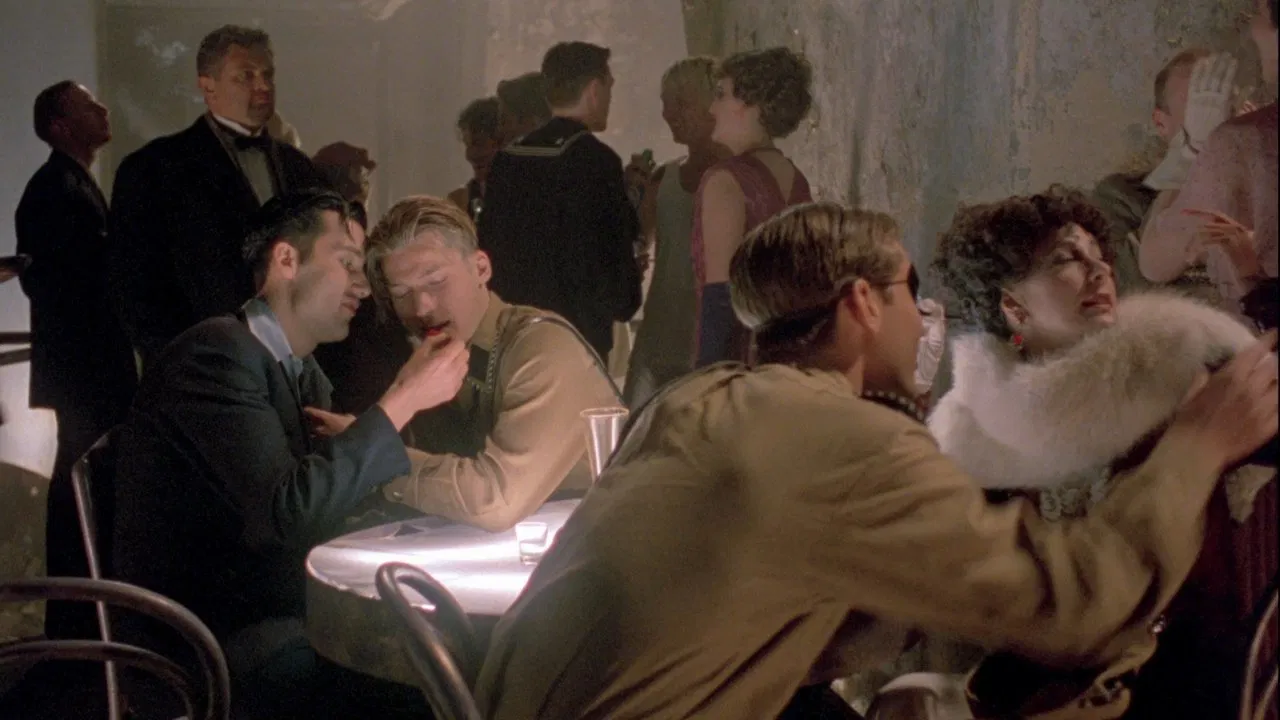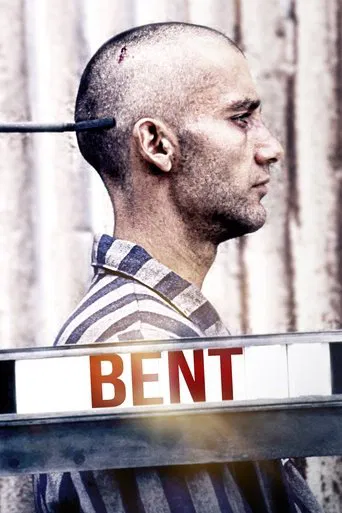

I wanted to like it more than I actually did... But much of the humor totally escaped me and I walked out only mildly impressed.
... View MoreThe movie turns out to be a little better than the average. Starting from a romantic formula often seen in the cinema, it ends in the most predictable (and somewhat bland) way.
... View MoreOne of the worst ways to make a cult movie is to set out to make a cult movie.
... View MoreActress is magnificent and exudes a hypnotic screen presence in this affecting drama.
... View MoreThe horror at the heart of this film is portrayed unflinchingly, but without sensationalism. The story is about the Nazi's extermination of homosexuals during the Third Reich. Max is a wild-living young queer man who takes one risk too many and finds himself in Dachau concentration camp. From the moment he is captured, he resolves to survive and must find out how far he is willing to go to do so.Max's (Clive Owen) determination to survive powers the narrative, and I found it utterly compelling. The film is well directed, sliding seamlessly from impressionistic fantasy to nightmarish realism. Not all of the acting is brilliant, but Clive Owen is good, and cameos from Mick Jagger and Ian McKellen are rewarding.
... View Morea story of survive. and love. and courage. a sensitive subject because the Nazi camps are too clear, in too many films, defined. a film who seems be perfect. illustration of a not real known side of tragedy, dramatic for the force of music, convincing for the art of cast, cold and strange and convincing and bitter. the music and the cinematography in inspired mixture for describe an episode out of words. Clive Owen . and Lothaire Bluteau. and the impression , after its end, to be more than a film. because the scent of cinematography, the forms of resistance, the pride as only manner to remain yourself remains, for a time, in memory, clear. a film about Nazi camps. and about a window to freedom.
... View MoreI love historical dramas. This subject matter is very rarely talked about. Jews, poles, gypsies and other undesirables were all brutally exterminated. Homosexuals are very rarely talked about. So this subject matter seemed very interesting. From the start the movie seemed like it was going to be a musical, and i almost turned it off. Then it seemed to try to be a rip off of "party Monsters" but set in pre ww II Germany. The action seemed to get better and the story line started to develop. However the acting and the plot just falls apart, into something predictable and bland. The whole movie seems like someone who wrote a high school play was suddenly given a big movie budget but decided to keep it in a play format.
... View MoreNo person who is knowledgeable about the Holocaust can ever claim that without seeing Bent. The play which opened in 1979 in London is about those all too forgotten victims of the Holocaust, the gay people of Europe. On Broadway the lead role that Clive Owen plays was essayed by Richard Gere for the run of 241 performances in the 1979-1980 season. Doing his original role from the London production as Uncle Freddie is Sir Ian McKellan.For those who think that homosexuality doesn't have an inherited element in it, Bent certainly gives lie to that. During the Weimar Republic years Germany had a thriving gay if somewhat discreet scene. After the Night of the Long Knives with the SA purge in 1934, gays were systematically rounded up for a final solution and Hitler certainly did a thorough job of it. Today the German Federal Republic has once again a thriving gay scene. Those recessive genes are popping out in full force.Bent does begin right at the Night of the Long Knives where Ernst Roehm was killed and anyone whoever knew of him and his not so discreet gay lifestyle was done in. The long knives of Himmler's SS come calling that night on Clive Owen and his boyfriend Brian Webber because they've picked up a pretty young man who used to trick with Roehm. He dies quite gruesomely, but they escape.Owen seeks aid from an old gay man who's called Uncle Freddie played by Ian McKellan who gives him some help, but whom Owen doesn't take some good advice from. McKellan has been very much deep in the closet, it's what's made him survive a society where homophobia is not just approved, but is now the law of the land.After this the scene cuts to a train to Dachau and Dachau itself where Owen and Webber are taken. Webber doesn't survive the trip, that scene is something I don't want to reveal. Owen decides that he'll take the Jewish star of David rather than a pink triangle, in the Dachau pecking order gay is worse than Jewish. Just as Schindler's List showed the dehumanization of Jews, Bent shows the dehumanization of gay people. Only there was no Oskar Schindler to save some of them. In fact sexuality as a form of repression has not ever been better displayed on screen than in Bent.But Owen learns about gay pride from another prisoner, Lothaire Bluteau who wears the pink triangle in defiance. They find a connection and consummate that connection in the only way they can do it under the circumstances. Again a scene I can't reveal.This film should not be missed by any Gay/Lesbian/Bi-Sexual/Trangendered person on this planet. It shows better than anything else what we potentially face in the way of repression when we are dehumanized by law and societal mores. We cannot let that happen and we have to make sure it's stopped in the places it does happen in the world.And this review is dedicated to all the brothers and sisters who died back then. Here's hope for a better world for our next generation.
... View More